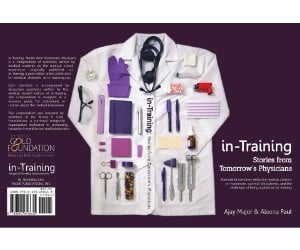
Advice for Interns on Night Float
Earlier this year SDN member bob123451 was the lucky intern starting residency on night float ... Read more
Written by: Student Doctor Network
Published on: October 13, 2016

Earlier this year SDN member bob123451 was the lucky intern starting residency on night float ... Read more
Written by: Student Doctor Network
Published on: October 13, 2016

It’s important to remember that as you prepare for and apply to medical school, there ... Read more
Written by: AAMC Staff
Published on: October 13, 2016

In an ideal world, the months before an MCAT test date would be exclusively devoted ... Read more
Written by: Cassie Kosarek
Published on: October 12, 2016

It is not just nostalgia and excitement that grips me as I am nearing the ... Read more
Written by: Butool Hisam
Published on: October 11, 2016

Although repeated to the point of being cliche, “to help people” is one of the ... Read more
Written by: Brian Wu
Published on: October 10, 2016

By Amy Rakowczyk One thing is certain during medical school: your medical spouse is going ... Read more
Written by: Amy Rakowczyk
Published on: October 6, 2016

Consider these three questions. First, what is a loan? Second, how is it typically is ... Read more
Written by: Tae Kwan
Published on: October 5, 2016

When did you first hear about medical scribes? I first heard the term ‘medical scribe’ ... Read more
Written by: Alyssa Kettler
Published on: October 4, 2016

In early 2012, medical students Ajay Major and Aleena Paul started in-Training.org, a website dedicated ... Read more
Written by: Student Doctor Network
Published on: September 29, 2016

Republished with permission from here. Earlier in the summer, I was speaking with a friend ... Read more
Written by: Brent Schnipke
Published on: September 28, 2016

While your dream of getting accepted to medical school probably involves countless nights studying, hundreds ... Read more
Written by: AAMC Staff
Published on: September 27, 2016

Central to the skillset of every physician is the differential diagnosis; this is the process ... Read more
Written by: Brent Schnipke
Published on: September 26, 2016

Organic Chemistry is a hurdle every premed must undertake. For many, it can dissuade you ... Read more
Written by: StudySchedule
Published on: September 22, 2016

Follow these six steps to achieve Shelf Exam success
Written by: ExamGuru
Published on: September 21, 2016

Before medical school, the dream of becoming a physician involves helping people and curing disease. ... Read more
Written by: Universal Notes
Published on: September 20, 2016

Taking the MCAT can be a nerve-wracking experience. In fact, many students develop significant test ... Read more
Written by: Anubodh “Sunny” Varshney
Published on: September 19, 2016

In Part One of this series, we discussed post-baccalaureate pre-medical programs for career-changers (i.e. those who have ... Read more
Written by: Cassie Kosarek
Published on: September 14, 2016

Two days before interviewing at the medical school I now attend, I couldn’t get out ... Read more
Written by: SDN Staff
Published on: September 12, 2016

Recognizing the connection between lab work and surgery What surprised me the most during my ... Read more
Written by: Michael Mehlman
Published on: September 7, 2016